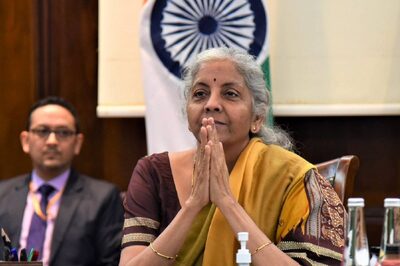
views
FRANKFURT: Germany’s coronavirus vaccination campaign faced delays in several cities on Sunday after medical staff found potential irregularities in the cooling of the shot produced by BioNTech and Pfizer.
The European Union launched a mass COVID-19 vaccination drive on Sunday with pensioners and medics lining up to get the first shots to see off a pandemic that has crippled economies and claimed more than 1.7 million lives worldwide.
“When reading the temperature loggers that were enclosed in the cool boxes, doubts arose about the compliance with the cold chain requirements”, the District Office of Lichtenfels in the north of Germany’s largest state Bavaria said in a statement.
The Pfizer vaccine, which uses new so-called mRNA technology, must be stored at ultra-low temperatures of about -70 degrees Celsius (-112°F) to remain effective before being shipped to distribution centres.
Pfizer has designed special shipping containers filled with dry ice to keep the vaccine from spoiling while in transit. Shots can be kept in an ultra-low temperature freezer for up to six months, or for five days at 2C to 8C – a type of refrigeration commonly available at hospitals.
Besides Lichtenfels, the northern Bavarian cities of Coburg, Kronach, Kulmbach, Hof, Bayreuth and Wunsiedel also held off from inoculating people after uncertainty arose about whether the cold chain had been maintained.
“Vaccination against the coronavirus is not about who vaccinates the fastest or who does the most doses. Safety and conscientious work for the benefit of the population has the highest priority”, said Oliver Baer, district administrator of the district of Hof.
Similar problems also delayed the vaccination campaign in the southern Bavarian city of Augsburg, daily Merkur reported.
Germany’s vaccination campaign officially kicked off on Sunday with residents of elderly care homes being inoculated. The federal government is planning to distribute more than 1.3 million doses to local health authorities by the end of this year and about 700,000 per week from January.
Vaccinations will be free and available to everyone from mid-2021 once the priority groups are expected to have finished being inoculated.
“This makes us proud and above all confident that we can overcome this pandemic – because vaccinating paves our way out of the crisis,” Health Minister Jens Spahn said in a tweet.
Disclaimer: This post has been auto-published from an agency feed without any modifications to the text and has not been reviewed by an editor
Read all the Latest News, Breaking News and Coronavirus News here



















Comments
0 comment